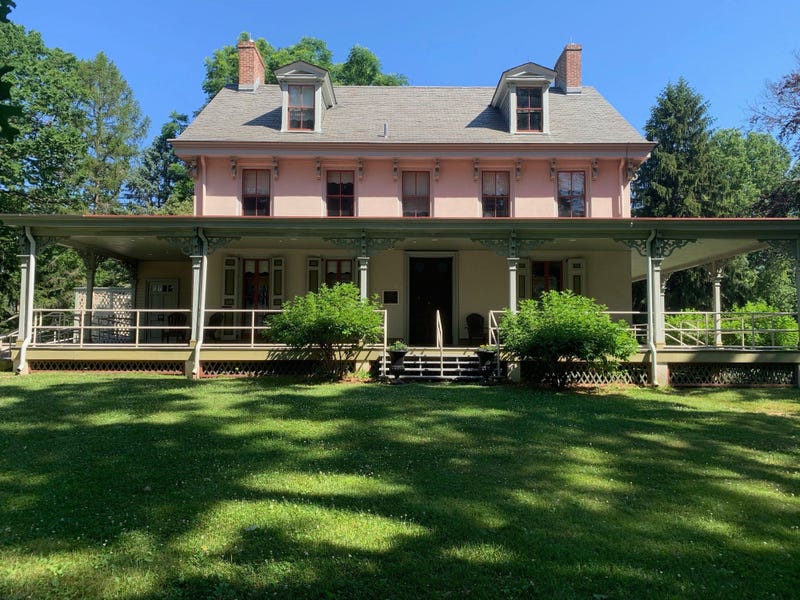
That prisoner was Tacie’s oldest daughter, Alice.
“It was a tense time here at Paulsdale,” said Lucy Beard, executive director of the Alice Paul Institute, headquartered in the sturdy Quaker farmhouse where the suffragist was born and raised.
Fast-forward to 1907, when she decided to go to England to study social work. There, she quickly became involved with what the institute calls “England’s most radical suffragette(s)”: Emmeline Pankhurst and her daughters.
Their extremism, which often resulted in their arrests, garnered substantial media attention. Alice Paul and others famously protested their incarceration with hunger strikes — incentivizing guards to aggressively force-feed them.
After that ordeal in England, Alice Paul returned to Paulsdale’s 173 acres in 1910.
Over the years, she fought brutally to advance women’s rights in America — going as far as advocating the separation of Black women from the movement to further the crusade, which historians say has, in retrospect, tarnished her reputation.
Still, she became one of the most dynamic forces in the U.S. women’s suffrage movement. She’s known for inventing protest strategies, like a march on Washington and White House pickets, which eventually contributed to women winning the right to vote.
What is Paulsdale today?
It should be understood, though, that Paulsdale is not a museum. The building is historic — its wood floors, tall windows, and wide porch paint a picture of late 19th-century life — but there is little memorabilia from Alice Paul’s life. Her ne’er-do-well nephew sold most of her belongings to support himself, and she died penniless in a Moorestown nursing home in 1977.
Instead, Paulsdale serves as a living memorial to her work for gender equality.
The not-for-profit organization had also intended to start a traveling exhibit this year, called “Marketing the Movement: How Women Won the Vote,” exploring the ingenious ways women promoted their right to vote.
Due to the coronavirus pandemic, much of the programming has moved online, but that has brought about an unexpected benefit by reaching a larger and wider audience.
“Our continuing message is educating people about the rich legacy of women as leaders,” Beard said. “We want children to understand they’re standing on the shoulders of generations that fought really hard to get them the rights they can now take for granted, and we want adults to understand there is this rich legacy.”
___

